By Erica Wright
The Birmingham Times
The special election for Birmingham City Council seats in districts 1, 6, and 7 is on Tuesday, October 8. With less than a week to go, candidates are doing all they can to get their messages out to voters. The winner in each race will serve the remainder of the unexpired term in his or her respective district through the 2021 city elections.
Polls are open from 7 a.m. to 7 p.m. on October 8; runoff elections, if needed, for candidates who do not get 50.1 percent of the vote will be held on November 19.
Before you cast your vote, the Birmingham Times introduces you to candidates for the three contested City Council seats.
Meet the District 1 candidates
Apple Valley, Bridlewood, Echo Highlands, Huffman, Killough Springs (also part of District 4), Springlake, Sun Valley
Incumbent Birmingham City Council Member Clinton Woods and challengers Sherman Collins Jr., a business owner, and Haki Jamaal, a radio personality are vying to fill the seat vacated by Lashunda Scales, who left last fall after being elected to the Jefferson County Commission.
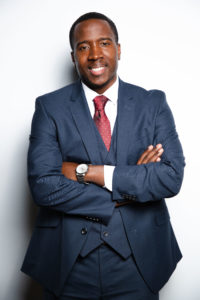
Clinton Woods was selected by the City Council to fill the seat in December and was sworn in in January. Having served only nine months, Woods said he has been able to make some huge accomplishments for District 1 and the entire city of Birmingham.
“We were able to get quarterly meetings at night that really help provide residents better access to City Hall and allow them to better participate in the process,” he said. “A lot of times, people can’t come to City Hall at 9 in the morning to get on the list to speak. … Basically, if you [wanted] to come to City Council meetings, you [would] have to take off work or school, which is not conducive for most people.”
Woods—son of businessman Chris Woods, who ran unsuccessfully for mayor of Birmingham in 2017, and grandson of local Civil Rights leader Bishop Calvin Woods—pointed out that he established the Ready, Set, Read program, in partnership with the nonprofit literacy group Better Basics, to help students at Huffman Academy improve their reading skills.
“Roughly, 15 percent of our students are reading at grade level,” Woods said. “We go into Huffman Academy and work with 60 students to help them get that attention in small-group training from now until testing starts in March, so we can track their reading level, class grades, test scores, attendance, and behavior.”
He also started the Be Litter Free campaign, which educates residents about the consequences of littering, in addition to sending out a weekly clean-up team to focus on hot spots and give citizens the opportunity to earn community service hours.
As for pressing needs in District 1, Woods said road paving and economic development need to be addressed.
“We were successful in getting a substantial investment of $8 million for road paving, as well as upgrading all of our road-maintenance equipment. … The city really stepped up this year and made a real investment into the future upkeep of our roads,” Woods said, adding that much more support is needed because the work hasn’t started, and roads need continuous maintenance.
Woods also cited business growth in the area: “We’ve had a strong flow of businesses into the area this year, … about eight new businesses. … The goal is to get one grocery store and at least two restaurants as soon as possible.”
Sherman Collins Jr., who served on the Birmingham City Schools (BCS) Board of
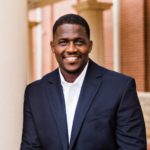
Education from 2013 to 2017, said road maintenance and the lack of businesses in District 1 are key issues—and he’s running for office to change that. In fact, he said, he’s already begun.
“I’ve already done some light talking to people about moving their businesses to our area or expanding their business in our area,” Collins said. “I want to take advantage of any incentive the city has to attract businesses to our community. We also have to bring back [sales] tax revenue we’re spending in other municipalities into our district in order to fund fixing our roads.”
If elected, Collins wants to “bring a grocery store to the area to spur economic development. If I could do that in the [time] left in this term, that would be great.”
Because he has already served his district as a member of the school board, Collins believes his track record speaks for itself.
“It is just basically reminding [voters] about who I am and the fact that I have still been working in the community, both in and out of office,” he said. “I’ve been working [with] the schools, and I hope they remember me and everything I’ve done. [I hope they] give me this opportunity to serve again. I like to say, ‘I am District 1.’”

Haki Jamaal, a community activist and radio personality with Birmingham’s WSYP-LPFM 95.1, hopes help people in District 1 prosper in all aspects, including physically and financially.
“I would like to see black people have full control and autonomy over their communities,” he said. “I want to see black children prosper. I want to see education prosper like [it does in] every other school system.”
More programs are needed to help people deal with many issues facing the community, Jamaal said.
“You have to understand the needs of the people, go out and talk to people, make yourself accessible. You have to create programs and give [people] healthy alternatives to help eliminate crime, such as adult-literacy programs. If you provide information when it comes to sex education and spreading [sexually transmitted diseases (STDs)], why not do it for crime? I have a plan to implement programs for the youth and their families to assist with their needs.”
Jamaal said he is a people person, and that makes him good for the district.
“I want to see our people do well,” he said. “As long as [the City Council] is for our people, it doesn’t matter what political differences or ideologies we may have. I’m willing to work for what’s better for the people. … I’m not playing politics. I’m not lying to you. Whatever I tell you I’m going to do, I’m going to do it. I’m not just going to try to pander to special interest groups just to get votes. I’m sincere. What I can’t do, I cannot do. What I can do, I will do it.”
Meet the District 6 candidates
Arlington West End, Cooper Green Homes, Glen Iris (also part of District 3), Graymont (also part of District 5), Mason City, Loveman Village, North Titusville, Oakwood Place, Powderly (also part of District 7), Smithfield, South Titusville, West End Park, Woodland Park
Incumbent City Council Member Crystal Smitherman and challengers Willine Body, president of the Graymont neighborhood; Carlos Chaverst Jr., a community activist; LaTanya Millhouse, director of her own nonprofit group; Clarence Muhammad of the Birmingham Black Economic Alliance; Keith Williams, a neighborhood officer; and Onoyemi “Oni” Williams, community organizer for the Peacemakers Campaign have thrown their hats in the ring for the seat vacated when Sheila Tyson left last fall to take her place on the Jefferson County Commission.
In her nine months on the council, Crystal Smitherman said some of her biggest
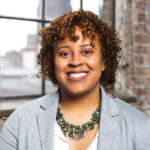
accomplishments for District 6 include demolishing homes, pushing for funding to pave the Green Springs Bridge, working with the Housing Authority of the Birmingham District (HABD) to provide affordable multiunit family housing, and advocating for bus transportation for Hemphill Elementary School students.
“I got $2 million approved for the [underpass on Sixth Avenue South, which has been flooding for decades], and hosted the first District 6 job fair. I also hosted a home-ownership seminar in September,” she said. “We’ve demolished more than 70 homes and cut and cleared more than 200 overgrown lots.”
Smitherman’s top priorities while serving on the council have focused on issues, such as environmental justice and affordable housing, as well as “dealing with recycling, preventing and combatting dumping and littering, … and making sure street paving is being done.”
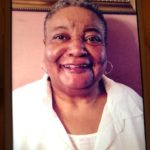
Willine Body said the most pressing needs in District 6 are abandoned properties and the care of those properties “because the eye appeal is not very good,” she said, adding that she plans to work with neighborhood presidents to improve the upkeep of their communities and help reduce crime.
“If your neighborhood is not being kept up, that can play a factor in violence. If a person committing a crime goes to a neighborhood that doesn’t look good, … they feel like they can just move on in and do whatever they want to do,” she said.
Body said her experience as an inspector with the U.S. Department of Housing and Urban Development (HUD) and several years as a neighborhood president will help her on the City Council.
“I am more open to listening to the needs and concerns people have,” she said. “I already communicate well with the mayor, and I feel like I would do well working with the council because I understand that I would be a part of the council—and I am not the council.”
Clarence Muhammad believes much of the crime in District 6 is due to the lack of jobs

and opportunities.
“I would like to eliminate crime through economics,” he said. “There is high crime in the area, drug problems, housing issues. I view crime as an economic issue, so I will work to bring large businesses to the district that create jobs, [something] I’m working on right now.”
Muhammad, who said he brings 27 years of service to the community, has always lived in the district and worked with several political campaigns in the district.
“I’m aware of the intricate issues in the district, and I have a working relationship with elected officials, so I have the ability to get things done,” he said.

Onoyemi “Oni” Williams plans to fight blight and debris by creating a community dumping site to decrease trash in the area. She explains that the city has a landfill where residents can go free of charge to dump acceptable waste materials, such as household plastic containers, aluminum cans, steel cans, newspapers, and cardboard, but it’s too far away.
“Many vacant industrial sites are falling apart, so I think it is important to see how we can create satellite dumping sites throughout the district,” she said. “Those sites would be there on a regular basis. We also can have roll-off dumpsters [in place] permanently, so the trash can be cycled out to help alleviate some of the blight and dumping instead of just letting things sit on the side of the road until the next trash pickup.”
If elected, Williams said she will work toward a more informed district to “make more effective the manner of communication into the community and coming out of the community,” she said. “I think there is a very poor communication infrastructure right now. We need to make sure the community knows about every opportunity that’s available.”
LaTanya Millhouse, senior program manager with the Alpha Omega Group, an

organization she formed in 2004 to foster needs of the community, said 67 percent of District 6 is made up of rental property, and the economic wealth is distributed unevenly. Her focus will be economic development in the area.
“My goal is to empower my community one house at a time,” she said. “I would address the different needs of each area because Titusville has different needs from the West End. Then we have the Cooper Green community, which has other needs.”
Millhouse, who has more than 30 years of economic development experience in the community, added, “For example, if a child is in the Birmingham City School [BCS] system then the parents can go to Lawson [State Community College] and get a free education, but we’re not talking about that—and that [can lead to] economic growth in our community. Parents can go to Lawson and learn a trade if they have a child that gets free lunch in the school system. … We have to promote that to create economic growth and opportunity.”
Millhouse said she is one of two candidates born and raised in the district, so she knows “the history of the district and can move [it] forward one house at a time.
“You have to know where you’ve been to know where you need to go,” she said. “I would be an advocate to move us to the next level—for the community, for the district. We keep doing the same things over and over again expecting something different. I am that change that we need. I may not be the loudest person in the race, but I am the most consistent, the most productive with the most experience.”

Carlos Chaverst Jr. said poverty is the biggest issue in District 6.
“Poverty is multifaceted and affects other things, such as education,” he said. “[Some] kids have to go to school every morning hungry, and the only meal they get is at school. We don’t take into consideration that our kids deal with that. The lack of jobs; … the lack of community development, policing, and housing; blight issues—these are the main things that contribute to poverty in the district.”
At age 26, Chaverst is one of the youngest candidates in the race, and he said he brings a “fresh mindset of change and ideas.”
If elected, Chaverst said he plans to begin tackling the issues of poverty by studying the aspects that contribute to poverty, including as jobs and education.
“[I am] looking to work with our current boards and agencies, such as the [HABD], to implement some policies that will ultimately serve in the best interest of our people,” he
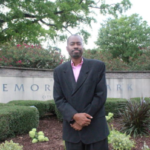
said. “[I plan to] create social service programs to teach people how to interview for jobs, show them … how to write a resume, show them how to train for different jobs and skills.”
Multiple efforts to reach Keith Williams for comment were unsuccessful
Meet the District 7 candidates
Central Park (also part of District 8), East Brownville, Garden Highlands, Germania Park, Graselli Heights, Green Acres (also part of District 8), Hillman, Hillman Park, Industrial Center, Jones Valley, Powderly (also part of District 6), Oakwood Place (also part of District 6), Oxmoor Valley, Riley Travelick, Roosevelt City, Tarpley City, West Brownville, West End Manor (also part of District 6), West Goldwire
Incumbent Council Member Wardine Alexander and challengers Lonnie Malone, a business executive, and Raymond Brooks, a retired senior executive are running for the seat vacated when Jay Roberson stepped down last September to move to Alabaster.
Wardine Alexander was appointed to the City Council last October to replace Roberson when the City Council voted her in on a 5-3 vote over Malone. In just about a year,

Alexander, a former Birmingham City Schools (BCS) Board of Education member and president, said she has accomplished each goal she set for District 7 in her interview with the council when she was being considered for appointment.
“I outlined three areas of concern: neighborhood revitalization, safety, and road maintenance,” she said. “What I’m most encouraged about is that I immediately came in and addressed the blight. I worked with the mayor’s office and the neighborhoods to identify those homes that really needed to come down immediately. I started a program called Chat and Chew with neighborhood presidents, as well as Coffee with the Clergy, designed to increase communication and collaboration among the neighborhood presidents and people in the district.”
Out of those quarterly Chat and Chew neighborhood meetings, Alexander said she was able to identify neighborhoods where homes can be demolished and replaced by newer affordable housing.
“We’re looking at three neighborhoods where we are going to work to build affordable housing: Germania Park, Tarpley City, and Oakwood Place,” she said. “Though it is important to demolish unoccupied homes, we also want to decrease blight by not leaving behind vacant lots.”
Alexander supported the mayor’s 2020 fiscal budget, which has monies set aside for issues that still plague her district, such as road paving. If elected, she plans to continue addressing blight and community revitalization for the remainder of the term.
“I’d also like to encourage workforce development and educational programs within the district because I believe that when you give jobs, when you give people hope, and that helps to improve the quality of life and can benefit the district. I also want to establish communication and collaboration among the private and public sectors and other stakeholders, … so we can work together to improve our district.”
Alexander, who said she is running on her experience in community and civic engagement, wants voters to know, “I am District 7, and we are District 7. I believe leadership counts, and it’s important to pay attention to the whole district. My education and background, as well as my professional work through the years, have given me the opportunity to really hit the ground running and start to immediately work for the district.”
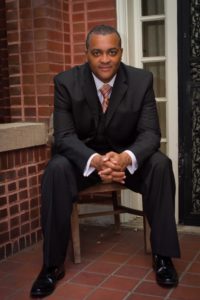
Lonnie Malone, who ran unsuccessfully in 2017 for the City Council seat now occupied by Alexander, said issues such as infrastructure and workforce development need to be addressed in District 7.
“We have areas that flood. We don’t have enough lights and other basic infrastructure needs. We need jobs in our district. I think the lack of jobs [contributes to] crime. We need some type of trade program for young adults, ages 19 to 25, because we’re not paying enough attention to that generation,” he said, adding that “our senior citizens also feel like they’re being overlooked in the district.”
If elected, Malone will begin to address those issues by implementing programs, such as “adult literacy to get young adults back up to speed, as well as trade classes that will get them comfortable enough to learn that trade and maybe a partnership with Lawson State Community College so they can get that degree. As far as senior citizens, they’re asking for simple things: we can create day centers, where they can take computer classes or exercise classes.”
When it comes to infrastructure, Malone said he will work with the mayor and find out his plans to stop issues like flooding and blighted homes. Malone also would like to bring more businesses to the area, such as a grocery store and restaurants if he is elected.
“In the first year or year and a half, I would like to see a grocery store, some restaurants, and some new homes being built,” he said. “I’m currently working on that with some
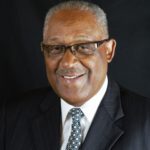
prime real estate developers, and we’ll probably present it to the city within the first month I’m in office.”
Multiple efforts to reach Raymond Brooks for comment were unsuccessful.
This post was updated on October 3, 2019 at 10:07 a.m. to correct one of Sherman Collins’ quotes.





